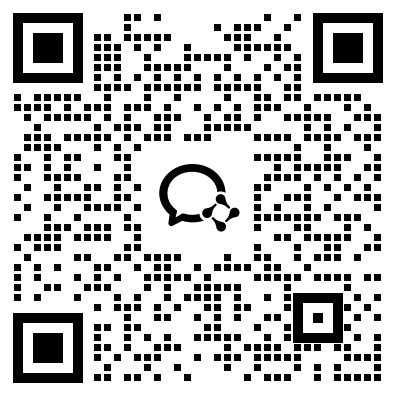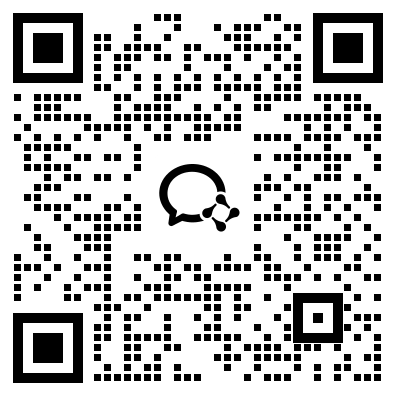特惠-26考研冲刺
特惠-27考研课
双证-在职硕士
免联考-同等学力
复试分数线
26复试全面指导
模拟复试面试
26考研-全套真题
26考研估分
保研-路线图
27考研-智能择校
27考研-英语测评
27考研-新大纲对比
热门-计算机择校

扫码加入训练营
牢记核心词
学习得礼盒
考研英语阅读文章题源大部分来源于《经济学人》、《时代周刊》、《新闻周刊》、《科学美国人》、《商业周刊》、《纽约时报》、《美国新闻报道》、《华尔街日报》、《卫报》、《自然杂志》、《没过大西洋周刊》等,还有一些来源于:《新科学家》、《社评杂志》、《福布斯》、《哈佛经济评价》、《麦肯锡季刊》、《科学探索》、《科学》、《观察家报》、《哈佛杂志》、《美国学校董事会杂志》、《星报在线》、《Big Think》、《华盛顿邮报》、《基督教科学箴言报》(这些只出过一次),所以,对于有精力的同学,课余不妨可以读读这些报刊杂志的文章,拓展拓展知识和眼界,提升阅读能力。本文新东方在线给大家解析考研英语阅读阅读来源文章:Who's a Nerd, Anyway?
From The New York Times
By Benjamin Nugent
July 29,2007
Who's a Nerd, Anyway?
What is a nerd? Mary Bucholtz, a linguist at the University of California, Santa Barbara, has been working on the question for the last 12 years. She has gone to high schools and colleges, mainly in California, and asked students from different crowds to think about the idea of nerdiness and who among their peers should be considered a nerd; students have also "reported" themselves. Nerdiness, she has conducted, is largely a matter of racially tinged behavior. People who are considered nerds tend to act in ways that are, as she puts it, "hyperwhite".
While the word "nerd" has been used since the 1950s, its origin remains elusive. Nerds, however, are easy to find everywhere. Being a nerd has become a widely accepted and even proud identity, and nerds have carved out a comfortable niche in popular culture; "nerdcore" rappers, who wear pocket protectors and write paeans to computer routing devices,are in vogue, and TV networks continue to run shows with titles like “Beauty and the Geek". As a linguist, Bucholtz understands nerdiness first and foremost as a way of using language. In a 2001 paper, “The Whiteness of Nerds: Superstandard English and Racial Markedness'', and other works, including a book in progress, Bucholtz notes that the "hegemonic" "cool white" kids use a limited amount of African-American vernacular English; they may say “blood" in lieu of "friend," or drop the “g” in “playing”.
But the nerds she has interviewed, mostly white kids, punctiliously adhere to Standard English. They often favor Greco-Latinate words over Germanic ones ("it's my observation" instead of "I think”),a preference that lends an air of scientific detachment. They're aware they speak distinctively and they use language as a badge of membership in their cliques. One nerd girl Bucholtz observed performed a typically nerdy feat when asked to discuss "blood" as a slang term; she replied: “B-I-O-O-D. The word is blood," evoking the format of a spelling bee. She went on, "That's the stuff which is inside of your veins," humorously using a literal definition Nerds are not simply victims of the prevailing social codes about what's appropriate and what's cool; they actively shape their own identities and put those codes in question.
Though Bucholtz uses the term “hyperwhite" to describe nerd language in particular, she claims that the "symbolic resources of an extreme whiteness" can be used elsewhere. After all, trends in music, dance, fashion, sports and language in a variety of youth subcultures are often traceable to an African-American source, but unlike the styles of cool European American students, in nerdiness, African-American culture and language do not play even a covert role. Certainly, "hyperwhite" seems a good word for the sartorial choices of paradigmatic nerds. While a stereotypical black youth, from the zoot-suit era through the bling years, wears flashy clothes, chosen for their aesthetic value, nerdy clothing is purely practical: pocket protectors, belt sheaths for gadgets, short shorts for excessive heat, etc. Indeed, "hyperwhite" works as a description for nearly everything we intuitively associate with nerds, which is why Hollywood has long traded in jokes that try to capitalize on the emotional dissonance of nerds acting black (Eugene Levy saying, "You got me straight trippin, boo”) and black people being nerds(the characters Urkel and Carlton in the sitcoms "Family Matters" and "The Fresh Prince of Bel-Air”).
By cultivating an identity perceived as white to the point of excess, nerds deny themselves the aura of normality that is usually one of the perks of being white. Bucholtz sees something to admire here. In declining to appropriate African-American youth culture, thereby "refusing to exercise the racial privilege upon which white youth cultures are founded," she writes, nerds may even be viewed as "traitors to whiteness." You might say they know that a culture based on theft is a culture not worth having. On the other hand, the code of conspicuous intellectualism in the nerd cliques Bucholtz observed may shut out "black students who chose not to openly display their abilities.” This is especially disturbing at a time when African-American students can be stigmatized by other African-American students if they're too obviously diligent about school .Even more problematic, "Nerds' dismissal of black cultural practices often led them to discount the possibility of friendship with black students," even if the nerds were involved in political activities like protesting against the dismantling of affirmative action in California schools. If nerdiness, as Bucholtz suggests, can be a rebellion against the cool white kids and their use of black culture, it’s a rebellion with a limited membership.
【英语阅读资料】这里有↑↑↑
本文关键字: 考研英语阅读阅读来源

 资料下载
资料下载
2014年-2025年考研历年真题汇总
发布时间:2024-04-25扫码添加【考研班主任】
即可领取资料包
考研大纲PDF电子版下载-历年(附解析)
发布时间:2024-04-25扫码添加【考研班主任】
即可领取资料包
2026年考研政数英备考资料zip压缩包
发布时间:2024-04-25扫码添加【考研班主任】
即可领取资料包
考研英语大纲词汇5500打印版(基础必备)
发布时间:2024-04-25扫码添加【考研班主任】
即可领取资料包
新东方在线考试模拟题【12套】
发布时间:2024-04-25扫码添加【考研班主任】
即可领取资料包
2026年考研专业课知识点总结
发布时间:2024-04-25扫码添加【考研班主任】
即可领取资料包
新东方考研资料下载地址
发布时间:2023-05-17新东方在线考研资料合集
下载方式:微信扫码,获取网盘链接

目录:
1.2013-2023年近10年政数英真题及解析PDF版(新东方)
2.2013-2023年专业课考试历年真题及解析PDF版
3.24考研复习备考资料大合集:大纲+备考资料+词汇书+考前押题+自命题
资料介绍:
1.2013-2023年近10年政数英真题及解析PDF版(新东方)
 、
、
2.2013-2023年专业课考试历年真题及解析PDF版


3.24考研复习备考资料大合集

3.24考研复习备考资料:考研大纲

3.24考研复习备考资料:政数英备考资料+自命题真题

------------------
考研备考过程中,尤其是专业课部分,参考往年的考试真题,对于我们的复习有更好的帮助。北京大学考研真题资料都有哪些?小编为大家进行了汇总。
北京大学考研真题资料-公共课

北京大学考研真题资料-专业课


以上就是关于“北京大学考研真题资料下载(历年汇总)”的整理,更多考研资料下载,请关注微信获取下载地址。
2024考研公共课必背知识点汇总
发布时间:2023-01-03扫码添加【考研班主任】
即可领取资料包
2013-2023考研历年真题汇总
发布时间:2023-01-03扫码添加【考研班主任】
即可领取资料包
考研英语大纲词汇(PDF可打印)
发布时间:2023-01-03扫码添加【考研班主任】
即可领取资料包
2024考研专业课知识点总结
发布时间:2023-01-03扫码添加【考研班主任】
即可领取资料包
2023考研政治 内部押题 PDF
发布时间:2022-11-16扫码添加【考研班主任】
即可领取资料包
徐涛:23考研预测六套卷
发布时间:2022-11-16扫码添加【考研班主任】
即可领取资料包
考研政数英冲刺资料最新整理
发布时间:2022-11-16扫码添加【考研班主任】
即可领取资料包
23考研答题卡模板打印版
发布时间:2022-11-16扫码添加【考研班主任】
即可领取资料包
2023考研大纲词汇5500PDF电子版
发布时间:2022-07-28扫码添加【考研班主任】
即可领取资料包
考研历年真题(公共课+专业课)
发布时间:2022-07-28扫码添加【考研班主任】
即可领取资料包
考研英语阅读100篇附解析及答案
发布时间:2022-01-07扫码添加【考研班主任】
即可领取资料包
新东方考研学霸笔记整理(打印版)
发布时间:2022-01-07扫码添加【考研班主任】
即可领取资料包
2001-2021年考研英语真题答案(可打印版)
发布时间:2022-01-07扫码添加【考研班主任】
即可领取资料包
考研英语词汇5500(完整版下载)
发布时间:2022-01-07扫码添加【考研班主任】
即可领取资料包
2022考研政审表模板精选10套
发布时间:2022-01-07扫码添加【考研班主任】
即可领取资料包
历年考研真题及答案 下载
发布时间:2021-12-09扫码添加【考研班主任】
即可领取资料包
考研政审表模板汇总
发布时间:2020-06-17扫码添加【考研班主任】
即可领取资料包
近5年考研英语真题汇总
发布时间:2020-06-17扫码添加【考研班主任】
即可领取资料包
考研英语大纲词汇5500
发布时间:2020-06-17扫码添加【考研班主任】
即可领取资料包
2022考研12大学科专业排名汇总
发布时间:2019-11-21扫码添加【考研班主任】
即可领取资料包
2023考研政治复习备考资料【珍藏版】
发布时间:2019-11-21扫码添加【考研班主任】
即可领取资料包
考研英语万能模板+必备词汇+范文
发布时间:2019-11-21扫码添加【考研班主任】
即可领取资料包
考研数学一、二、三历年真题整理
发布时间:2019-11-21扫码添加【考研班主任】
即可领取资料包

添加班主任领资料
添加考研班主任
免费领取考研历年真题等复习干货资料

 推荐阅读
推荐阅读
为了让考研的同学更高效地复习考研英语,新东方在线考研频道整理了“考研英语1阅读错几个后的复习计划”,考研的同学可以了解一下,希望对大家有所帮助。
为了让考研的同学更高效地复习考研英语,新东方在线考研频道整理了“考研英语二阅读篇数及题型分析”,考研的同学可以了解一下,希望对大家有所帮助。
为了让考研的同学更高效地复习考研英语,新东方在线考研频道整理了“考研英语阅读理解的总结与反思”,考研的同学可以了解一下,希望对大家有所帮助。
来源 : 网络 2025-06-13 08:02:00 关键字 : 考研英语阅读理解
为了让考研的同学更高效地复习考研英语,新东方在线考研频道整理了“提高考研英语一阅读理解的五大策略”,考研的同学可以了解一下,希望对大家有所帮助。
为了让考研的同学更高效地复习考研英语,新东方在线考研频道整理了“探索考研英语阅读文章的逻辑结构”,考研的同学可以了解一下,希望对大家有所帮助。
来源 : 网络 2025-06-12 08:03:00 关键字 : 考研英语阅读

 资料下载
资料下载
扫码添加【考研班主任】
即可领取资料包
扫码添加【考研班主任】
即可领取资料包
扫码添加【考研班主任】
即可领取资料包
扫码添加【考研班主任】
即可领取资料包
扫码添加【考研班主任】
即可领取资料包
扫码添加【考研班主任】
即可领取资料包
新东方在线考研资料合集
下载方式:微信扫码,获取网盘链接

目录:
1.2013-2023年近10年政数英真题及解析PDF版(新东方)
2.2013-2023年专业课考试历年真题及解析PDF版
3.24考研复习备考资料大合集:大纲+备考资料+词汇书+考前押题+自命题
资料介绍:
1.2013-2023年近10年政数英真题及解析PDF版(新东方)
 、
、
2.2013-2023年专业课考试历年真题及解析PDF版


3.24考研复习备考资料大合集

3.24考研复习备考资料:考研大纲

3.24考研复习备考资料:政数英备考资料+自命题真题

------------------
考研备考过程中,尤其是专业课部分,参考往年的考试真题,对于我们的复习有更好的帮助。北京大学考研真题资料都有哪些?小编为大家进行了汇总。
北京大学考研真题资料-公共课

北京大学考研真题资料-专业课


以上就是关于“北京大学考研真题资料下载(历年汇总)”的整理,更多考研资料下载,请关注微信获取下载地址。
扫码添加【考研班主任】
即可领取资料包
扫码添加【考研班主任】
即可领取资料包
扫码添加【考研班主任】
即可领取资料包
扫码添加【考研班主任】
即可领取资料包
扫码添加【考研班主任】
即可领取资料包
扫码添加【考研班主任】
即可领取资料包
扫码添加【考研班主任】
即可领取资料包
扫码添加【考研班主任】
即可领取资料包
扫码添加【考研班主任】
即可领取资料包
扫码添加【考研班主任】
即可领取资料包
扫码添加【考研班主任】
即可领取资料包
扫码添加【考研班主任】
即可领取资料包
扫码添加【考研班主任】
即可领取资料包
扫码添加【考研班主任】
即可领取资料包
扫码添加【考研班主任】
即可领取资料包
扫码添加【考研班主任】
即可领取资料包
扫码添加【考研班主任】
即可领取资料包
扫码添加【考研班主任】
即可领取资料包
扫码添加【考研班主任】
即可领取资料包
扫码添加【考研班主任】
即可领取资料包
扫码添加【考研班主任】
即可领取资料包
扫码添加【考研班主任】
即可领取资料包
扫码添加【考研班主任】
即可领取资料包

 阅读排行榜
阅读排行榜
 相关内容
相关内容